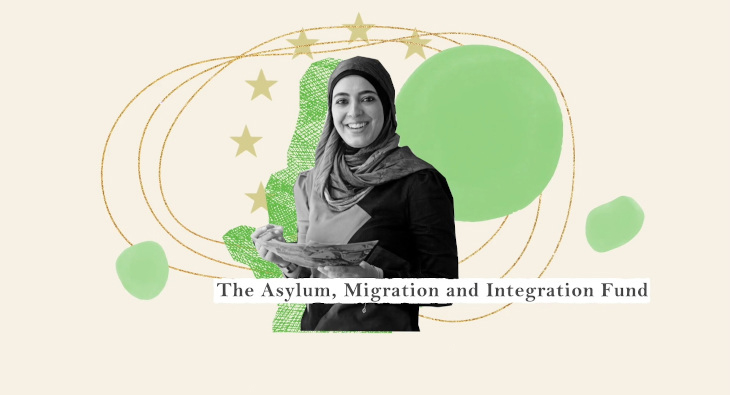Understanding the link between migration and (human) development is fundamental to purse a more sustainable and inclusive future. Human mobility is at the same time part of the structural transformation process of human development and a factor that affects such process. In particular, migration potentially affects the well-being of the migrants and their families, communities and nations, both in their hosting and origin societies. Understanding and assessing the factors and conditions that enable or hamper a potential positive contribution of migration to sustainable human development is more important than ever.
This change of perspective has been integrated in the latest call for proposal Asylum, Migration and Integration Fund (AMIF) on Transnational Actions on Asylum, Migration and Integration (AMIF-2023-TF2-AG-CALL).
The AMIF is a financial instrument of the European Union that aims at boosting national capacities and improve procedures for migration management, as well as to enhance solidarity and responsibility sharing between Member States, in particular through emergency assistance and the relocation mechanism. The call for proposal published in January 2023 asks participants to foresee a monitoring and evaluation strategy, based on key performance indicators (KPIs), both qualitative and quantitative, with baseline and targets to be used to monitor the implementation and to assess the result of the project, as well as measure the outputs and results of the project against programme performance indicators.
ARCO is actively involved in exploring and developing methodological approaches that assess with country-specific and gender sensitive lens the migrants’ multidimensional well-being and their social inclusion. More, ARCO’s analysis encompass the migrants’ reception system and policy implications, migration mainstreaming as well as the effectiveness of trainings and capacity building programmes targeting local authorities.
Our approach to both evaluation and research activities related to migration includes:
- the adoption of mixed-methods methodology in the data collection and analysis, by triangulating qualitative and quantitative methods and tools.
- participation of the migrants and their associations in the process in order to be able to capture their personal experience of migration and inclusion (values, aspirations, etc.)
- the importance of a large outreach and social uptake of the results, disseminating them through open access and open source communication channels.
- the definition of the effect of the project on the beneficiaries, using the participatory EHD (Human Development Evaluation) methodology, developed by ARCO researchers, which puts the person at the centre of the evaluation, delivers empirical results in a short time and makes it easy to communicate complex results.
Research and evaluation on migration entails challenges due to: gaining trust and cooperation, language and cultural barriers, mobility of migrants on the territories, difficulties in administering traditional data collection tools, etc.
In the extensive field experience as evaluator of migration-related project at international, Italian and local leve, ARCO’s researchers elaborated mitigation strategies that allow to overcome such bottlenecks while keeping the people at the centre of the process.
